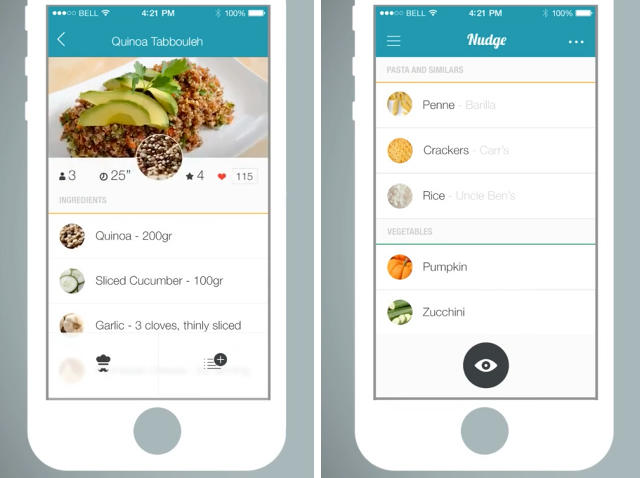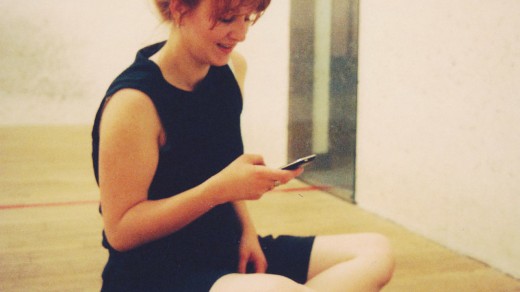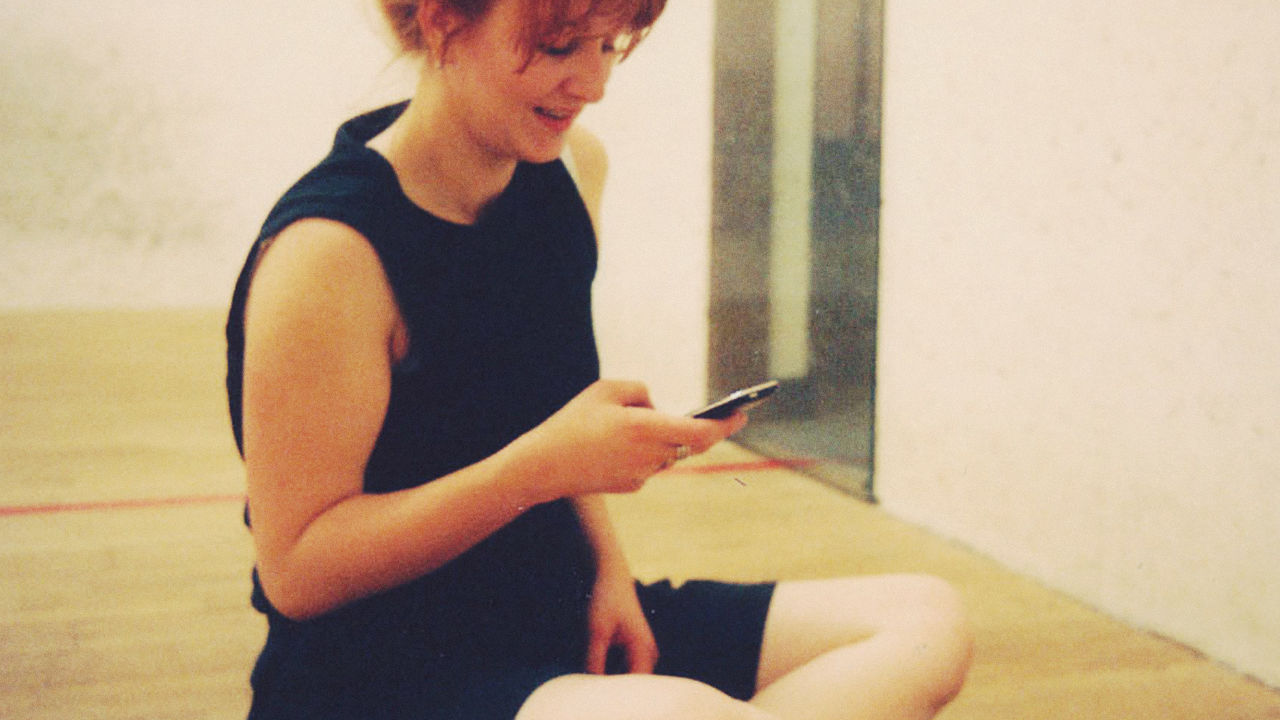Nudge Concept App Hopes To Point Pre-Diabetics Toward A Healthier Lifestyle
Could a simple shopping-and-cooking app improve the lives of patients (and increase quinoa sales)?
A new concept app from the London office of design and innovation consultancy Smart Design aims to improve the health of a large portion of the world’s population, a segment for whom weight loss can be a matter of life and death: diabetics.
Nudge is a concept app aimed at pre-diabetics—people with a high risk of developing type 2 diabetes—to change their eating habits. Described as a “personal nutritionist disguised as a shopping assistant,” the app keeps track of a user’s weekly grocery shopping using a phone’s camera to scan products on store shelves. The app looks for purchasing patterns that can be improved, and suggests healthy alternatives—like substituting red rice for white rice, or maybe even quinoa—to nudge the individual toward making better decisions. The idea is to help pre-diabetics make small, incremental changes.
The app also provides recipe ideas—this is important, because one type of phthalate found in food packaging has links to insulin resistance, a precursor to diabetes. In addition, the app adds up the price of your shopping for you, and keeps tabs on the eating habits of your whole family. It is thought that many children children between the ages of 4 and 10 are consuming more sugar in their diets than is healthy for them.
With over 8% of the world’s adult population—that’s around 350 million people—affected by the disease, diabetes is ranked by the World Health Organization as one of the top four non-communicable diseases. Along with cardiovascular disease, cancer, and chronic lung disease, the condition was responsible for 68 million deaths in 2012. By 2025, it is expected that over half a billion people will have contracted the disease due to poor lifestyle choices.

Nudge is the result of a personal crusade by Sean O’Connor, partner and senior design lead in Smart Design’s London bureau, after he lost his father to diabetes. “I had seen firsthand how difficult it was for him to make necessary behavioral changes to his daily routine after a lifetime of poor diet and fitness choices.”
The team began by mapping the entire patient journey for someone living with diabetes, before it decided to focus on those diagnosed with pre-diabetes to help them choose a healthier lifestyle. “After all, we are what we eat, and we eat what we buy, so better choices at retail can actually help keep people from developing the disease,” says O’Connor.
Many developers have your dietary habits in their sights, from the stick-like Carrot to the more futuristic flavor pill concept dreamed up by Koz Susani Design.
In 2012, a health care firm brought out a glucometer, which measures blood sugar levels via an add-on gadget that connects to a user’s iPhone. And a health startup in California has developed the Breeze breathalyzer that analyses the 300 biomarkers present in human breath in order to detect diseases including diabetes—a similar concept to Google’s smart contact lens, in development at its experimental department Google X.
(341)














